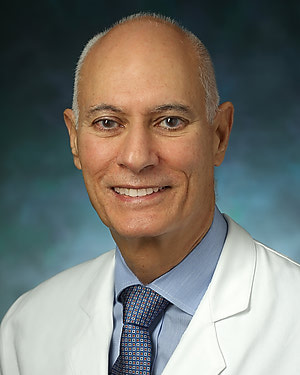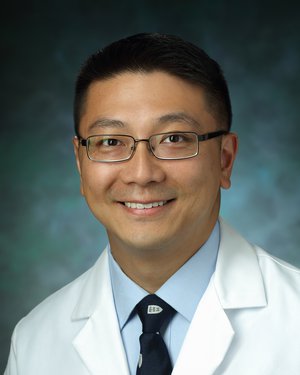Research Lab Results
-
Paul M. Hassoun Lab
The Paul M. Hassoun Lab leads research on the source and treatment of pulmonary arterial hypertension in scleroderma.
-
Li Gao Lab
The Li Gao Lab researches functional genomics, molecular genetics and epigenetics of complex cardiopulmonary and allergic diseases, with a focus on translational research applying fundamental genetic insight into the clinical setting. Current research includes implementation of high-throughput technologies in the fields of genome-wide association studies (GWAS), massively parallel sequencing, gene expression analysis, epigenetic mapping and integrative genomics in ongoing research of complex lung diseases and allergic diseases including asthma, atopic dermatitis (AD), pulmonary arterial hypertension, COPD, sepsis and acute lung injury/ARDS; and epigenetic contributions to pulmonary arterial hypertension associated with systemic sclerosis.
-
Rachel Damico Lab
Work in the Rachel Damico Lab explores topics within the fields of vascular biology and pulmonary medicine, with a focus on acute lung injury and apoptosis in lung diseases. Our studies have included examining idiopathic and scleroderma-associated pulmonary arterial hypertension, vascular receptor autoantibodies, and the link between inflammation and the Warburg phenomenon in patients with pulmonary arterial hypertension. We have also researched the inhibitory factor of macrophage migration and its governing of endothelial cell sensitivity to LPS-induced apoptosis.
-
Charles Wiener Lab
The Charles Wiener Lab primarily conducts research on pulmonary circulation and hypoxia as well as respiratory muscle function in patients with neuromuscular diseases. Our recent studies have included investigating the treatment of pericardial effusions in patients with pulmonary arterial hypertension and examining the use of non-invasive ventilation in patients with amyotrophic lateral sclerosis (ALS). We also have an interest in medical education research. Our work in this area has included reviewing the role of academic medical centers in emerging health care markets.
-
Charles Wiener Lab
The Charles Wiener Lab primarily conducts research on pulmonary circulation and hypoxia as well as respiratory muscle function in patients with neuromuscular diseases. Our recent studies have included investigating the treatment of pericardial effusions in patients with pulmonary arterial hypertension and examining the use of non-invasive ventilation in patients with amyotrophic lateral sclerosis (ALS). We also have an interest in medical education research. Our work in this area has included reviewing the role of academic medical centers in emerging health care markets.
-
Hsu Lab
Our work is focused on the translational human in vivo and ex vivo assessments of right ventricular (RV) function in the setting of pulmonary hypertension. Among patients with group I pulmonary arterial hypertension PAH, those with systemic-sclerosis-associated PAH (SSc-PAH) have a particularly poor prognosis and less optimal response to PAH-guided therapy. Using in vivo pressure-volume catheterization of the right ventricle, we have uncovered key deficiencies in resting and reserve RV function in the SSc-PAH group when compared to idiopathic PAH (IPAH) patients. These studies have uncovered key discoveries with regards to right ventricular-pulmonary arterial (RV-PA) coupling in PAH. In the lab, by studying myofilament function from RV endomyocardial biopsies from these same patients, we have uncovered corresponding deficiencies in myofilament contractility and calcium sensitivity as well. Ongoing work is directed towards determining the underlying mechanism of these findings, which will hopefully lead to therapeutic applications for RV failure in SSc-PAH. Further endeavors are directed towards studying RV failure in other populations, including exercise-induced PH, PH secondary to left-heart disease, and the left ventricular assist device population.
